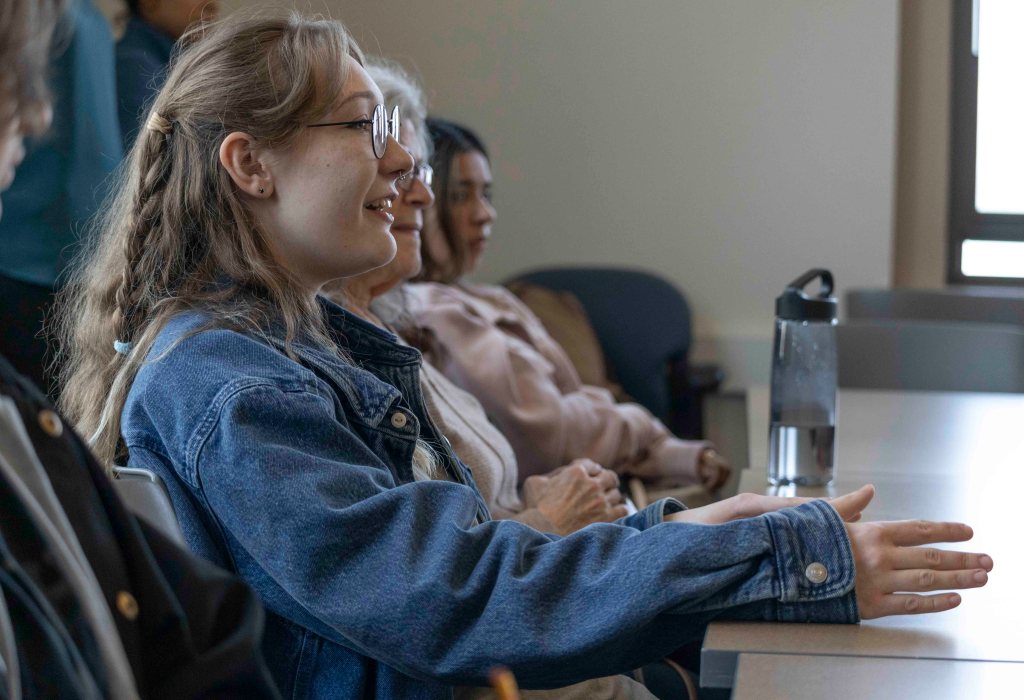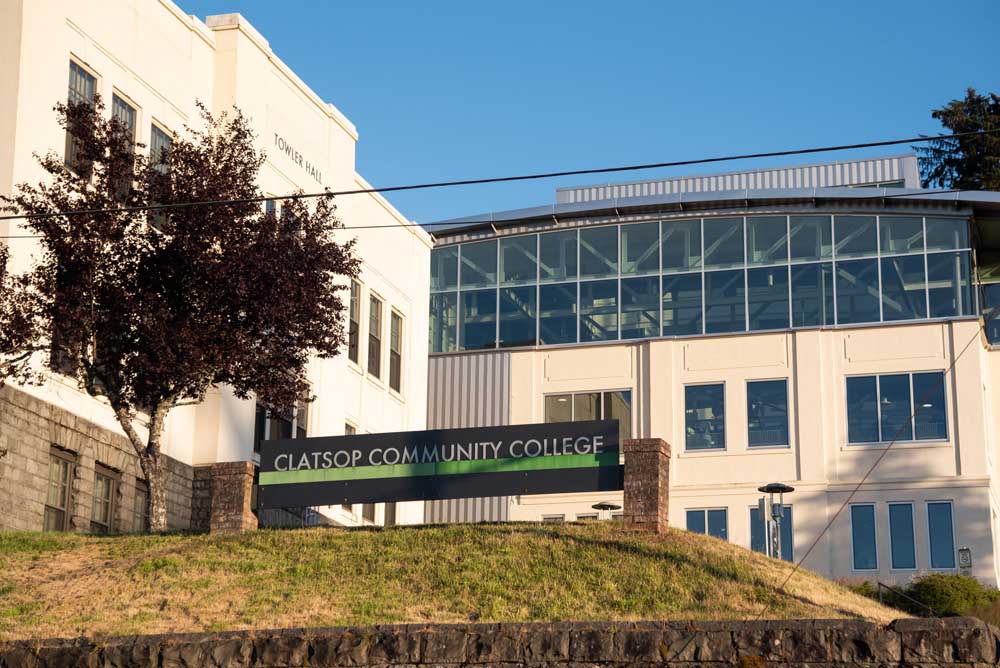Clatsop County students, staff stress importance of federal education funding
Published 11:13 am Tuesday, April 29, 2025

- Josie Kero, Clatsop Community College's Associated Student Government president, speaks to U.S. Rep. Suzanne Bonamici about how TRIO has impacted her educational experience. Photo by Lukas Prinos
TRIO opens doors.
That was the resounding message from local high school and college students on Friday during a meeting with U.S. Rep. Suzanne Bonamici at Clatsop Community College.
TRIO, which is not an acronym, is a set of eight federal programs that provide support for first-generation and low-income students and students with disabilities pursuing higher education. At Clatsop Community College, around a quarter of students are involved in TRIO and roughly 80% qualify for the program’s services — but recent changes under the Trump administration, including an executive order calling to dismantle the U.S. Education Department, have sparked uncertainties about continued funding.
Trending
“Right now, there are so many attacks against education and educational programs that are happening throughout, from K-12 and especially higher education, and some of these attacks are just pretty reckless,” said Bonamici, a Democrat representing the 1st Congressional District. “To me as a policymaker, one of the best investments we can make is in education, and that’s true from early childhood education all the way through higher education.”
Bonamici’s visit was one of several stops on an education tour across her district, which includes all of the North Coast.
At Clatsop Community College, TRIO advisers provide resources like financial literacy education, academic tutoring, assistance filing financial aid forms and more. TRIO is also present in local high schools to help students prepare for college. Christine Riehl, the college’s director of TRIO student support services, said the school is nearing the end of a five-year federal grant that has provided just over $360,000 annually. The college applied for another five-year grant of the same amount — and although the college is still proceeding as usual for the time being, it will likely have more certainty about funding in June.
In the meantime, the college has seen some changes. In March, for example, the U.S. Department of Education announced it would be revoking waivers to California and Oregon universities using federal funding to provide services to undocumented students, including TRIO services. As a result, the college’s TRIO office has added a question regarding citizenship back onto its applications.
“We’re trying to serve students the best we can and give everybody opportunities to be successful in education, and it’s difficult to do that when the rules keep changing on you,” Riehl said in an interview.
Riehl said she believes a loss of TRIO services would have significant impacts — and students feel similarly.
Trending
“TRIO is just like the heart of this community college,” said Josie Kero, the president of the college’s associated student government. “Our advising would not be as strong as it is without TRIO, and all the advisers have the skills and the background to really support our students.”
A few years ago, Kero dropped out of high school in Seaside. As she was working through her final paperwork, it was her high school TRIO adviser who pointed her toward Clatsop Community College. Without those resources — and the continued support she’s experienced from the college’s TRIO program — she told Bonamici she isn’t sure where she’d be.
Maria Herrera, a Seaside High School senior, also shared an appreciation for TRIO programs, including Upward Bound. Through Upward Bound’s summer academy, she said she had the opportunity to tour college campuses, meet other students and explore a career path in sociology.
For Donel Van Gundy, a Knappa High School senior planning to study political science, it’s the little things that have made a difference, like SAT and college application fee waivers. He gives credit to Chris Mahan, a TRIO pre-college adviser, for helping connect him with those resources. Van Gundy is also a finalist for a scholarship through the Ford Family Foundation, a nonprofit that awards promising students in rural Oregon up to $40,000 a year for college tuition.
“I would have never even knew what the Ford was if it wasn’t for Chris coming into our classroom every day and telling us about these opportunities, and I think that TRIO needs to be funded,” he said.
Bonamici said the best thing students can do is to continue to share their stories about TRIO, and send postcards, emails and phone calls to her office. Then, she can bring those stories back to Washington, D.C., to advocate for policies that invest in education.
“I’m going to keep fighting for the funding,” Bonamici said. “I’m going to keep fighting for the federal workers who administer those programs as well.”









